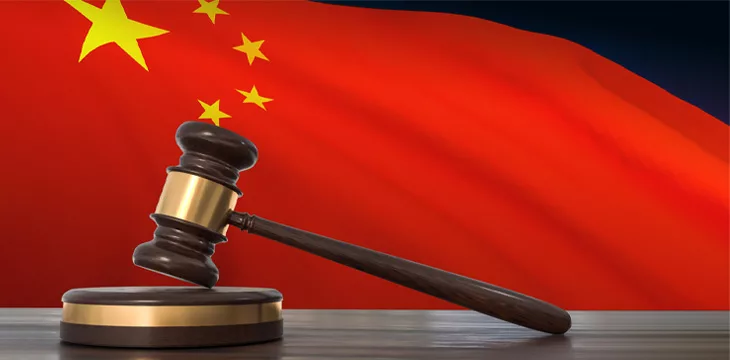|
Getting your Trinity Audio player ready...
|
Digital currencies can be used to settle debts in China, according to the country’s Supreme People’s Court. However, China’s highest court will only enforce such contracts if entered before September 2017, when the government issued a blanket ban on ICOs and digital currency exchanges.
The Supreme Court made the declaration months ago in a conference focused on financial and work disputes, but the details of the conference were not revealed until recently. One of the key declarations at the meeting was that digital currencies have some attributes of virtual property.
“If it is agreed between [two] parties that a small amount of virtual currency shall be used to compensate the debts arising from mutual exchange, labor service and other basic relations, [and] if there are no other invalid causes, the people’s court shall recognize the contract as valid,” the court declared.
The court also pledged to provide support in instances where one party cannot deliver the digital currency as agreed on a contract: In such a case, the court shall determine the scope of compensation depending on the value of the digital currencies agreed on the contract.
While it offered its support for such digital currency contracts, the Supreme People’s Court will not allow anyone to exploit the declaration to use Bitcoin as legal tender in China.
“Where a party uses virtual currency as a regular payment instrument to exchange legal tender or physical commodities under the guise of a basic transaction contract, the people’s court shall determine that the contract is invalid,” the court pointed out.
There’s another caveat—such contracts are only valid if entered before September 4, 2017, when China banned digital currency exchanges and ICOs. Contracts entered after that date shall be deemed invalid.
The court also pledged to help settle disputes arising from block reward mining contracts. However, these contracts must have been entered before September 3, 2021, when China explicitly banned all mining activities.
“The People’s Court shall certify that any contract after September 3, 2021, in which the parties agree to buy, sell, lease, keep the mining machine or provide additional services such as operation management and technology development, is invalid.”
China’s failing war against Crypto
The declarations are consistent with China’s anti-Crypto stance. Despite being one of the world’s biggest digital asset and blockchain hubs, China has fought against the industry for years.
Xi Jinping’s anti-Crypto war hasn’t been as successful, however. According to the University of Cambridge, China is only second to the U.S. for block reward miners. This is despite Jinping’s publicized efforts against miners that saw many go underground while others sought refuge in neighboring Kazakhstan, Russia, and the United States.
The collapse of the FTX exchange offered yet another glimpse into the failure that Xi’s war against digital assets has been. Court filings showed that China accounted for 8% of FTX users, the joint-third alongside Great Britain, and only behind the Virgin Islands and the Cayman Islands.
It doesn’t help that some exchanges like Binance and Huobi have continued to defy Chinese laws and serve its citizens. Binance has been revealed to have continued operating in China despite its bold claims that its app and website “have been blocked behind the Great Firewall.”
Huobi has been much more blatant. Bloomberg reported that the exchange allowed (and even pushed) Chinese users to apply for a Dominican digital ID and register as Dominicans to skirt China’s Crypto ban. The move was reportedly engineered by TRON (NASDAQ: TRX) founder Justin Sun who purchased the exchange last year.
Watch: Lise Li: BSV Blockchain in China

 02-15-2026
02-15-2026 




